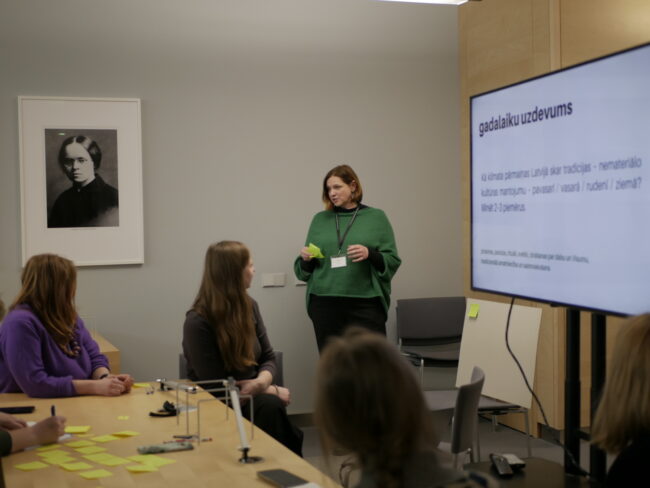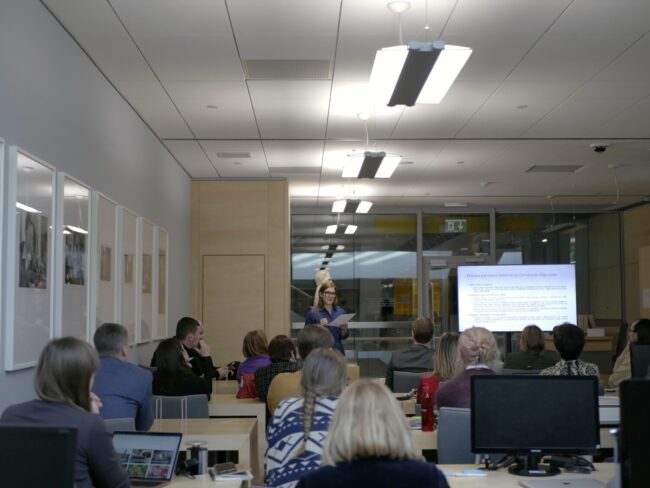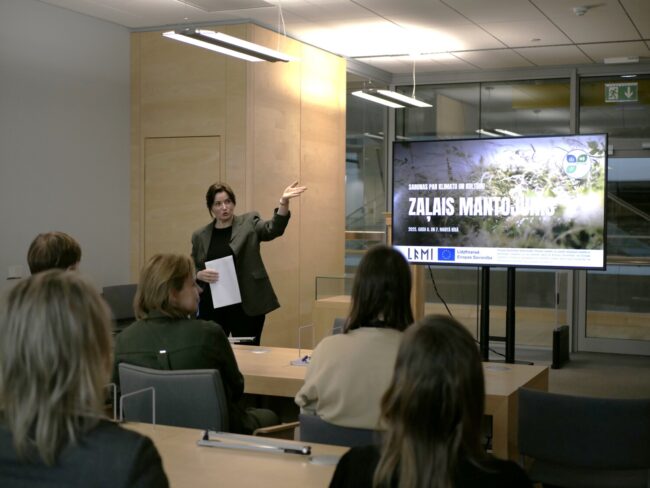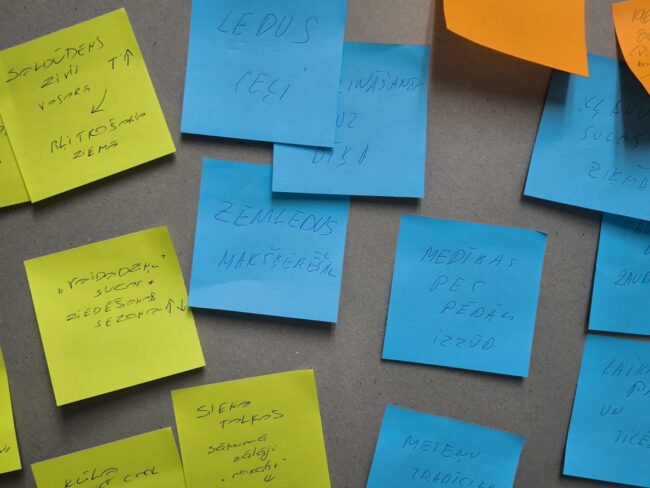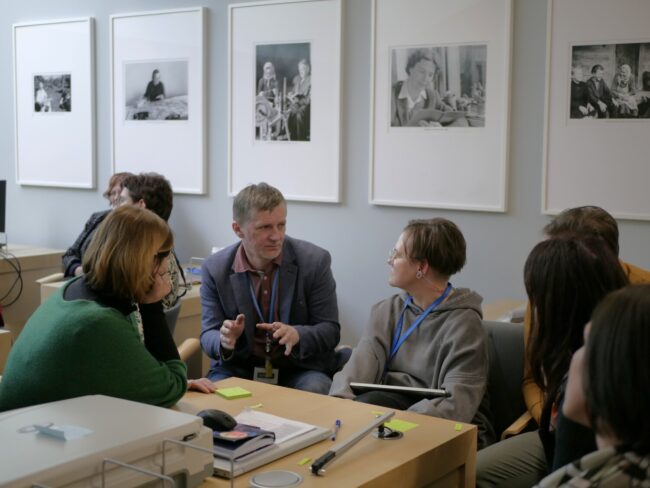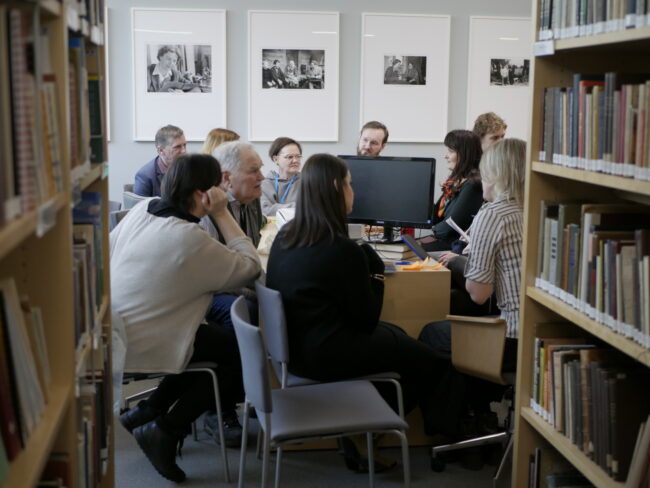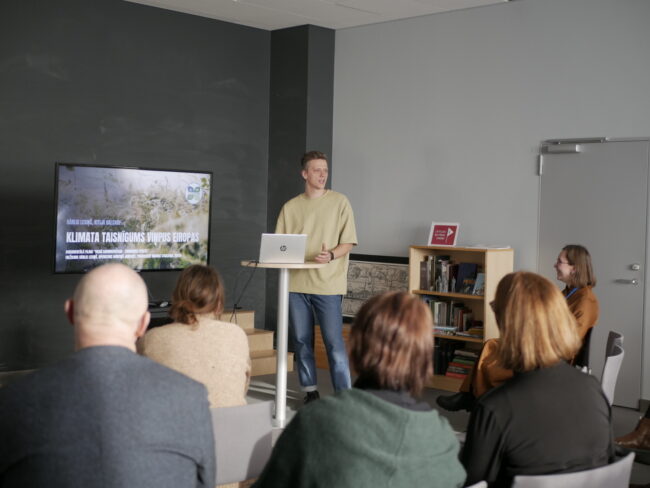In the face of climate change, alongside strengthening long-term cooperation between intangible cultural heritage communities, scientists and policy makers, it is important to raise public awareness of the risks and adaptation options. This was the message of the GreenHeritage “Climate and Culture Negotiations”, held in Riga on 6 and 7 March, 2025 and hosted by the Institute of Literature, Folklore and Art of the University of Latvia.
The roundtable participants stressed that awareness raising, a deeper understanding of the links, the presence of environmental issues in education at different levels, including outside formal education, the active involvement of local communities in strategic planning and public consultations, and the promotion of good practices are important for targeted action to protect intangible cultural heritage in the face of climate change.
Not only did the 25 participants see the current impacts of climate change on various living heritage practices in the Latvian cultural landscape, but they also saw traditional knowledge and skills as a source of incentives for a more climate-friendly way of life and the ability to adapt to new conditions. At European level, it would be important to consider targeted funding for intangible cultural heritage initiatives as an adaptation tactic to climate change. It is essential to develop multi-stage adaptation strategies for both existing and potential future risks, and to use existing climate change analysis tools to plan future models of action. The views of the panellists, experts in various fields, scientists and representatives of intangible cultural heritage communities will serve for further GreenHeritage project activities.
The second day of the talks was dedicated not only to summarising the conclusions of the roundtable and communicating them to the wider public, but also to outlining the current situation at European level, where extreme weather events and their various impacts on intangible cultural heritage are mentioned as the most frequent risk. The research carried out reveals that climate change is currently directly affecting several European traditions, including the skills of catching and processing lampreys in Carnikava, Latvia, which have already been analysed in a scientific publication prepared by researchers at the Institute of Literature, Folklore and Art of the University of Latvia, wine-growing traditions in Germany, mountaineering in Switzerland, Italy, France, the Valencian paella in Spain, ice skating in the Netherlands, the Festival of the Ceri in Italy, and others. The examples currently identified are also explained in detail in an interactive online tool, the GreenHeritage case study map.
The talks concluded with a screening of the documentary film, “Smart Farming—Zimbabwe Story” (2024), that highlighted themes of climate justice and power of the grassroot initiatives beyond Europe. Addressing the audience, director Kārlis Lesiņš pointed out the importance of not to be preoccupied with stereotypical ideas when documenting these themes, but to look at the subject matter of the film honestly and comprehensively.
The roundtable was a part of the international ERASMUS+ project “Green Heritage. The Impact of Climate Change on the Intangible Cultural Heritage” (D5.13 Policy Roundtable – M29), which brings together partners and researchers from Latvia, Greece, Italy, Spain and Belgium, to focus on the direct and indirect impacts of climate change on intangible cultural heritage and its sustainability. Latvia is represented in the project by the Institute of Literature, Folklore and Art of the University of Latvia.
Information provided by:
Kitija Balcare, Researcher, Institute of Literature, Folklore and Art of the University of Latvia
Mobile: (+371) 29683396 | E-mail: kitija.balcare@lulfmi.lv

